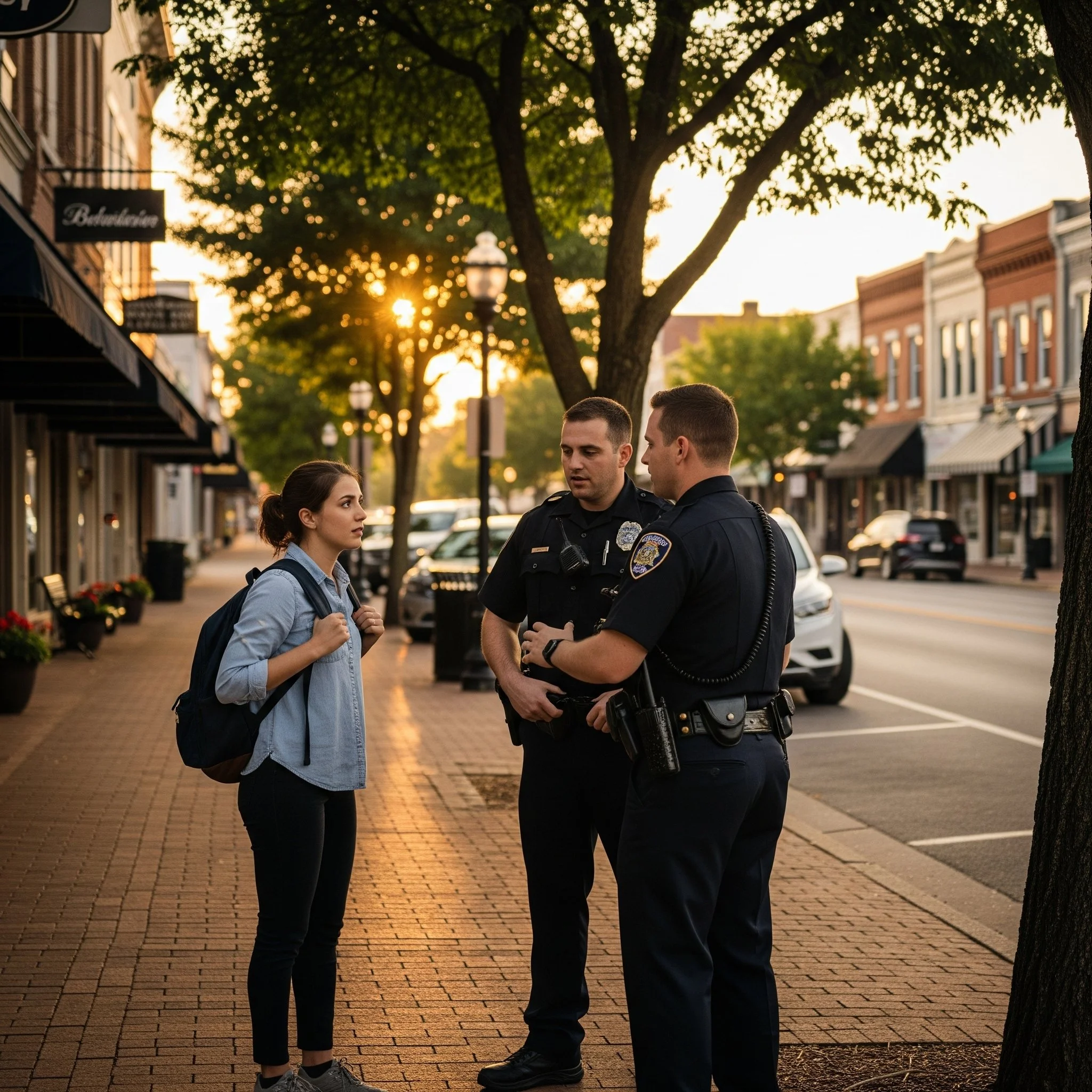Oklahoma Law on Pedestrian Identification
In Tulsa, Oklahoma; a pedestrian is not legally required to produce and hand over state-issued identification to a police officer during a casual or consensual encounter. This is not an absolute right, as the legal obligation to identify yourself hinges entirely on the nature of the police interaction.
Oklahoma is Not a "Stop and Identify" State
This means there is no standalone law that obligates a person to identify themselves to law enforcement simply upon request. However, this right is not absolute and depends on the circumstances of the police encounter.
Different Types of Police Encounters and Your Rights
1. Consensual Encounter
If an officer approaches you on the street and begins a casual conversation, this is considered a consensual encounter. You are not suspected of any particular crime.
Are you required to show ID? No.
Can you ask if you are free to leave? Yes. If the officer says you are, you may walk away.
What if you refuse to provide ID? You cannot be arrested or detained solely for refusing to show ID during a consensual encounter.
2. Investigatory Stop (Terry Stop)
This type of encounter occurs when a police officer has a reasonable suspicion that you have committed, are committing, or are about to commit a crime. Reasonable suspicion is more than a hunch, but less than the probable cause needed for an arrest. It must be based on specific, articulable facts.
Are you required to provide your name and potentially ID? Yes. During a lawful investigatory stop, U.S. Supreme Court precedent (Hiibel v. Sixth Judicial District Court of Nevada) allows officers to ask for your identity. Refusing to identify yourself in this situation can be considered obstruction of a police officer, which is a crime in Oklahoma.
What is the officer’s goal? To investigate the suspected criminal activity. This may include a pat-down of your outer clothing if the officer has a reasonable suspicion that you are armed and dangerous.
What should you do? You should provide your name and identification if requested during a lawful investigatory stop to avoid potential arrest for obstruction. However, you still have the right to remain silent and do not have to answer other questions.
3. Arrest
If an officer has probable cause to believe you have committed a crime, they can arrest you.
Are you required to provide ID? Yes. Upon arrest, you will be required to identify yourself as part of the booking process.
Key Takeaways for Pedestrians in Oklahoma:
Oklahoma is not a "stop and identify" state. You are not required to identify yourself if an officer is just casually talking to you.
The requirement to identify yourself begins when an officer has reasonable suspicion to believe you are involved in criminal activity.
You always have the right to ask, "Am I free to leave?" The officer's answer will clarify the nature of the encounter.
If you are being detained, you have the right to remain silent and the right to an attorney. You should clearly state, "I choose to remain silent and I want a lawyer."
The Law is Different for Drivers of Motor Vehicles
It is important to note that this information applies to pedestrians. The laws are different for drivers of motor vehicles, who are required to show their driver's license, registration, and proof of insurance upon request during a traffic stop.
Author: Brian J. Boeheim
Brought to you by: Boeheim Freeman Law – Tulsa, Oklahoma - Criminal Defense Attorneys – (918) 884-7791
